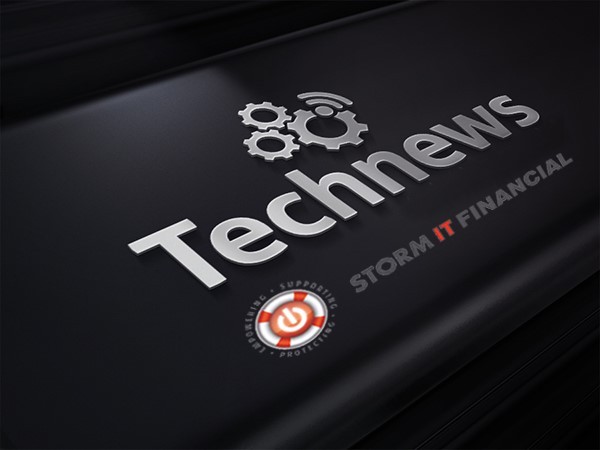FinTech Trends Newsletter Week 24th July – 28th July 2017

The Weakest Link: Are Your Employees Making You Vulnerable to Cyberattack?

In the Financial worlds increasingly threatened landscape, cybersecurity is a top concern for alternative investment firms, hedge funds, wealth managers and private equity businesses of all sizes. Organisations routinely spend billions on software and Information Security in an effort to protect themselves against an onslaught of ransomware, phishing scams and social engineering attacks, as we’ve seen in the last few months.
Unfortunately, many businesses don’t realise that the biggest threat to their Information Security is the human element. Employees are a vital link to a firm’s success, but they represent a complicated piece of the cybersecurity puzzle that is often overlooked by standard security algorithms and processes.
What Information Security Weaknesses Make My Business Vulnerable?
Businesses should consider the following potential vulnerabilities when securing their IT perimeter against human error and cyberattack:
*Poor employee password habits, such as repetitive characters and easy-to-guess phrases *Lack of proper BYOD (Bring Your Own Device) company protocols *Transmission of sensitive company information via an employee’s personal mobile device on a company network *Clicking on an unsafe attachment in an email or download *Unsecured sharing of passwords with others *Leaving company computers and mobile devices unattended when off premises and out-of-network *Using personally owned mobile devices to connect to the organization’s network for personal business *Poor system patch management and lack of regular up- dates *System misconfiguration errors.
Hackers Use Social Engineering to Prey on Employees’ Trust and Vulnerability
Today’s savvy hackers use sophisticated social engineering techniques to manipulate company employees into clicking on and/or open- ing infected email attachments and downloads. These phishing emails are designed to pose as authentic communications from company executives—and they are so effective, many employees can’t tell the difference between the hacker’s email and one from their CEO. Once your employee clicks on an infected attachment, a ransomware or other Trojan is unleashed into your company system.
In order to mitigate the vulnerabilities associated with the human element, industry experts recommend the following best practices:
- Education and Training of Employees – Poor employee password habits are a leading cause of incidents and data breaches. In order to mitigate the potential damage that even just one careless employee can wreak a firms network, it is vital to conduct regular and con- tinuing education and training sessions to keep everyone up to speed on the latest threats and best practices.
- Use Encryption for Confidential and Sensitive Information – Keep your most sensitive information out of the hands of cybercriminals with encryption technology.
- Maintain Backups in the Cloud – It isn’t enough to simply backup your data at the office IT experts agree that the most secure businesses have their backup in a virtual location. That way, if there is a natural or other disaster and your physical location is compromised, you can rely on the backups you’ve maintained virtually.
- Having Backup Isn’t Enough – Disaster Recovery Planning is Key – Simply having backup isn’t going to help during a disaster if that backup isn’t functional. Implementing a disaster recovery and business continuity plan will help keep your business up-and-running in the event of a catastrophe.
- Standardise Company BYOD Protocols – These days, everyone has a mobile device in their pocket. In order to mitigate the threat of an errant employee’s smartphone wreaking havoc on the company network, set standard policies for those who wish to use their own devices on company time. That way, everyone is on the same page and rogue access to your company network is limited.
Storm IT Financial can help train and educate your employees on cybersecurity best practices so you can avoid unnecessary & costly downtime. If you’d like more information on how to mitigate your alternative investment, hedge fund, wealth manager and private equity firms’ vulnerability when it comes to the human, employee element, please contact Storm IT Financial for more information.

Storm IT Financial FinTech News & Trends picks: Week 24th July – 28th July 2017
Amping up your disaster recovery with Azure Site Recovery
Azure Site Disaster Recovery Service allows you to failover on-premises applications running in the event of an outage:
https://azure.microsoft.com/en-us/blog/amping-up-your-disaster-recovery-with-azure-site-recovery/
Employees are your biggest risk: Data hygiene needs to start at the top
Cyber security professionals have long acknowledged that employees are the weakest link in an organisation’s information security:
http://www.cityam.com/269043/employees-your-biggest-risk-data-hygiene-needs-start-top
Big xyt launches liquidity cockpit
Big xyt, the provider of smart data & analytics capabilities launches Li-quidity Cockpit giving investment firms visibility over dark liquidity…:
https://www.finextra.com/pressarticle/70194/big-xyt-launches-liquidity-cockpit
Countdown to MiFID II: Are You Ready?
The clock is ticking for firms still trying to finalise their plans for MiFID II
changes to capture, archive & retrieve electronic communications:
https://www.finextra.com/blogposting/14327/countdown-to-mifid-ii-are-you-ready
UniCredit confirms data breach
Italy’s UniCredit says personal financial data of some 400,000 customers have been hijacked by unauthorised third parties:
https://www.finextra.com/newsarticle/30884/unicredit-confirms-data-breach
Back office data harvesting raises client confidentiality fears
Consolidation in wealth management is not just confined to merger and acquisitions but client data too:
London startup Hedgd provides full trade lifecycle management with cloud-based OMS
London-based startup Hedgd has launched its Hedgd OMS (Order Manage- ment System) that enables investment managers to take control of data:
Think you’re GDPR compliant? Veritas research says you probably aren’t
Veritas says only 2% of firms comply with the GDPR, showing misunderstanding over regulation readiness:
AWS, Azure, and the state of play right now
Shedding light on Microsoft Azure, Amazon Web Ser- vices (AWS) and the public cloud Today:
Cloud will drive growth of IT operations services
Public cloud & managed services help the growth of IT
operations management (ITOM) business model:
£14.5 m cyber-security technology innovation centre plans announced
UK government to spend £14.5 million on an innovation centre to foster the next of generation of cyber- security technology:
Robo Advisor reports: How many can the market take?
Scalable Capital and Netwealth CEO’s in video inter- view to discuss the robo-advisor market:

